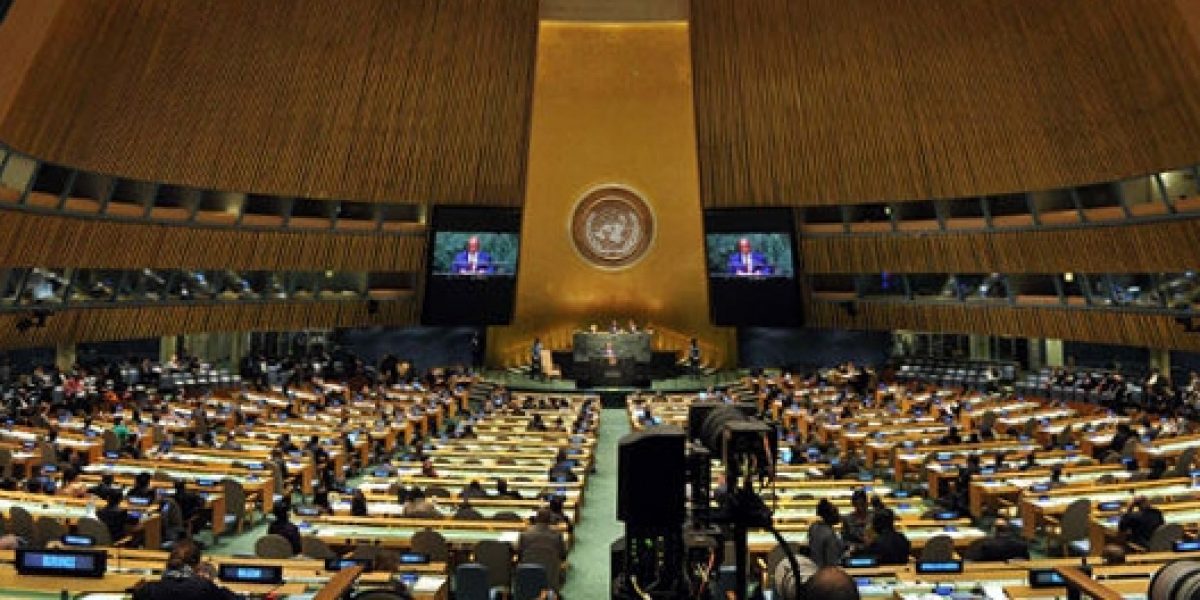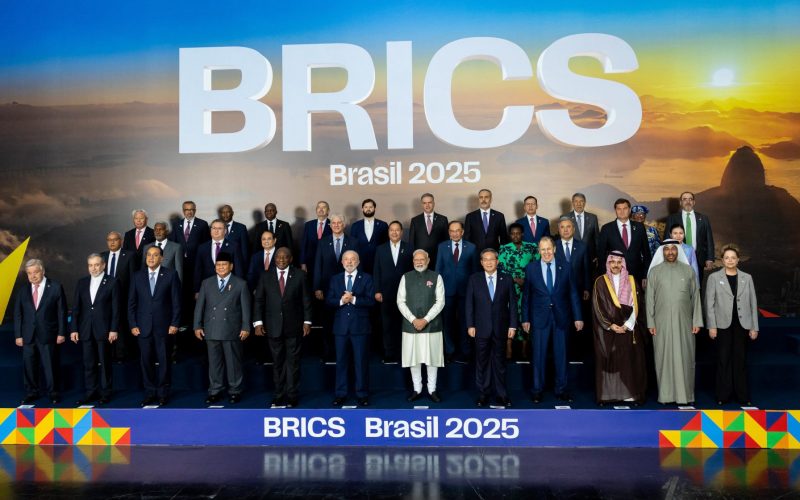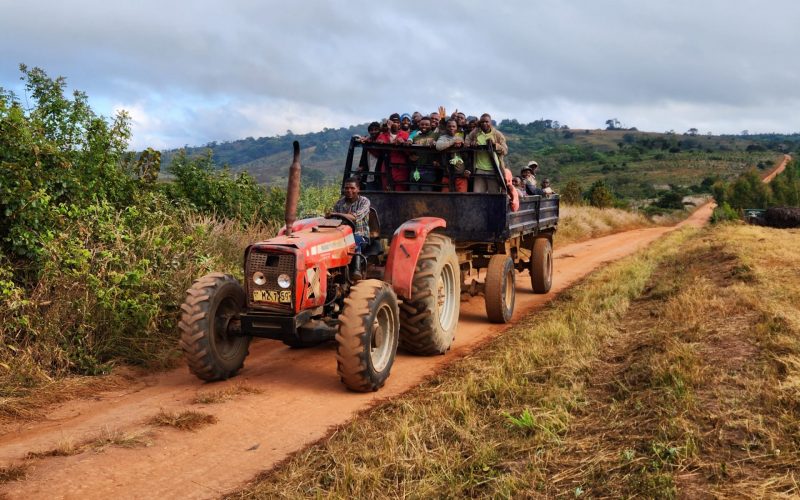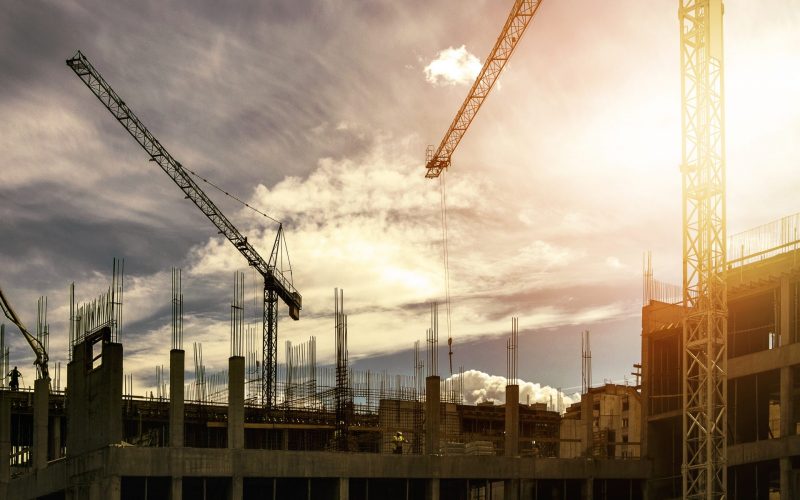The ambitious theme of the 69th session of the UN General Assembly, ‘Delivering on and implementing a Transformative Post-2015 Development Agenda,’ has set the scene for the negotiations to be pursued in the Open Working Group on the Sustainable Development Goals and other expert committees and related dialogues and working groups on the post-2015 development agenda.
Policymakers, civil society groups, business and researchers are all expected to make their voices heard on the framework that will replace the Millennium Development Goals (MDG) by September 2015. How is South Africa contributing to this debate and what does it have to offer as a development partner towards the noble goal of improving the plight of the world’s marginalised poor?
President Jacob Zuma emphasised during his remarks in the General Assembly debate that South Africa continues to regard the New Partnership for Africa’s Development (Nepad), which was adopted by African leaders in response to the global call for action triggered by the MDGs 15 years ago, as Africa’s ‘socio-development blueprint’. He further noted that ‘the African Union’s Vision 2063 will, together with Nepad, and other socio-economic development programmes, be the cornerstone and foundation of Africa’s Development Agenda going forward’.
South Africa’s reference to Africa as its focus in the post-2015 debate is significant. It underscores the centrality of the continent in South Africa’s world view, its foreign policy and ultimately the articulation of its role as a development partner in its region.
Why is it that the South African government articulates its development interventions largely through the prism of its foreign policy towards Africa?
Describing South Africa as a ‘donor’ is anathema to almost all South African policymakers, yet the paradox is that the country has played a significant development role in its region since its transition to democracy in 1994. Most people know that South Africa has been a significant recipient of aid since 1994 of around $1 billion a year. But South Africa is also an important ‘giver of aid’. A 2006 review by the National Treasury concluded that South Africa’s ‘ODA’ is comparable with countries such as Sweden and Norway. More recent estimates suggest that South Africa is surpassing even the ODA target set for traditional donors of 0.7% of GDP. South Africa is an active participant in many of the fora where global development is being discussed and also contributes substantially to development institutions – especially those with a focus on Africa.
Yet, many of South Africa’s regional development activities can hardly be described as ‘donor aid’ or ‘donor assistance’ in the traditional DAC sense. The OECD-DAC criteria of development aid sit uneasily with the activities that South Africa undertakes in the region. Conceptually they also do not square with South Africa’s world view. Rather, South Africa’s development interventions are framed within the broad interpretation of South-South cooperation suggesting an exchange of resources, technical expertise and peer learning.
The principles that inform South Africa’s approach on the ‘right’ to development are contained in the country’s constitution. As a product of the crucible that has framed rights and responsibilities in post-Apartheid South Africa, it is not only one of the most progressive constitutions in the world, it is also unique in the extent to which it includes justiciable socio-economic rights – not only political rights.
How is this relevant in the broader context of South Africa’s development role? In a very reductionist way, it means that South Africa views the pursuit of peace and stability in its region and the socio-economic development of the continent as mutually reinforcing and equally important development interventions. It is therefore no surprise that many of South Africa’s ‘development interventions’ in Africa fall under the rubric of peace-building, conflict mediation, post-conflict reconstruction and stabilisation in partnership with mainly African actors — often under a UN and/or AU mandate.
In addition, South Africa invests heavily in African institution-building, infrastructure development and regional integration. For example, South Africa played a leading role in engineering the reform of the African Union (AU), the adoption of the New Partnership for Africa’s Development (Nepad) and the African Peer Review Mechanism (APRM).
It also provides substantial support to these institutions and bodies alongside several other regional institutions, such as the Pan–African Parliament, the Southern African Development Community (SADC) and to regional peace operations and peace-building efforts. And it is also a significant contributor to concessional lending institutions with a focus on Africa, such as the World Bank (WB) and the African Development Bank (AfDB). Lastly, it has played an active role in calls for the reform of key global development finance institutions such as the World Bank and the International Monetary Fund (IMF). It is also a founding member of the BRICS Development Bank, now billed the New Development Bank.
The above initiatives demonstrate the primacy of Africa in South Africa’s external engagement, but also the South African government’s strong belief in the principle of subsidiarity. This latter point underpins its efforts to strengthen regional institutions and initiatives. It has also informed its efforts to improve cooperation between the UNSC and the AU Peace and Security Council during its two terms on the UNSC and to actively seek enhanced North-South and South-South cooperation in its global engagements.
While SAIIA’s research and that of other research institutions have shown that a variety of South African government departments are involved in development interventions in the region – such as the Industrial Development Corporation (IDC) and the Development Bank of Southern Africa (DBSA) – better coordination of South Africa’s efforts is also required; hence the discussion around the long-awaited launch of a South African development partnership agency or SADPA. First mooted in 2009, the establishment of SADPA is still awaited.
The global discussion on the successors to the MDGs in 2015 takes place against the background of the global constraints on mobilisation of new funding posed by the fall-out from the 2008 financial crisis; the related slow recovery in developed economies; and the emergence of powerful economies in the South, which continue to experience higher rates of growth than the industrialised world, yet face growing socio-economic inequalities. Thus a post-2015 development agenda has to consider the balance between the industrialisation aspirations of developing countries and planetary boundaries specifically related to climate change and sustainability; and the desire for inclusive growth and development.
What role for South Africa in this global process?
South Africa’s positioning and identity as a relatively small Southern actor provide it with comparative advantages in undertaking development partnerships and thus in contributing meaningfully to the global debate.
Besharati (2013) suggests that South Africa enjoys particular comparative advantages as a development partner. These include:
- Proximity and ‘insider’ status: South Africa’s own unique experiences of development and a shared identity and geography with the region enhance its capacity to engage with countries in the region. • Specialised expertise: While South Africa is not an experienced ‘donor’ it has significant strengths and capacities to share with the region. These include a strong track record in peace-building, reconciliation and democracy, mainly drawing from its own experiences. The South African government firmly believes that development is not possible without peace and stability. South Africa also has significant experience in ‘state and institution’ building that is complemented by its human resource development and capacity-building in Africa. For example South African government departments are heavily involved in the training of African civil servants.
- Public financial management: This is a key competency of the South African state. The South African Revenue Service (SARS) has won international plaudits for the way it manages revenue collection, customs management and domestic resource mobilisation. South Africa plays a leading role in the Collaborative Africa Budget Reform Initiative (CABRI) and in the African Tax Administration Forum. It is also a leading member of the C-10 (representing the Committee of Ten African Ministers of Finance and Central Bank Governors) and in regional capacity-building in statistical analyses and information-gathering. It is also the only African member of the G20 – a key global economic governance forum. The discussion around the 3rd Conference on Financing for Development taking place in Addis Ababa in July next year is a key policy process with significant implications for development finance against the backdrop of dwindling resources.
- Infrastructure: South Africa is a significant player in the development of the region’s infrastructure – both in framing and politically driving key African infrastructure projects such as the Programme for Infrastructure Development in Africa (PIDA). In addition, the country is providing extensive project financing and financial support through the IDC and the DBSA for regional water, transport, energy and telecommunications infrastructure.
But there are at least three more areas which the South African government should harness to play a meaningful role in this global process.
- Its strong epistemic community and the regional capacity building initiatives of South Africa’s civil society: South Africa has a robust and regionally engaged civil society that is involved in a range of capacity-building activities across the continent. Drawing on significant experiences in constitutional justice, mediation, peace-building, but also deep research expertise on regional integration, conflict analysis and early warning, trade and investment and Africa’s engagement with the rest of the world, South Africa has a significant platform on which to build a fuller South African development partnership offering to the continent – with important insights for the rest of the world.
- Regionally engaged private sector: South Africa’s relative economic strength as Africa’s most developed and second largest economy combined with its robust and regionally engaged private sector are contributing significantly to the continent’s development. South Africa is the biggest African investor in the continent and its FDI stock of US$ 18 billion in 2012 places it in second place (ahead of China) of developing country investors in Africa. There is a huge, ongoing debate in development circles on how to engage the private sector in development. There is much potential for the further exploration of innovative public-private partnerships in the region involving both South African and other international corporates.
- Bridge-builder: This comparative advantage is slightly more amorphous than the advantages previously identified. South Africa is an active member, participant and engaged observer in a range of global initiatives and fora (such as the WTO, the World Bank, the Africa Partnership Forum, the G20, the IMF, the OECD, the UN and its various agencies, IBSA and the BRICS), and in a range of African fora and institutions (such as the AU, SADC, the AfDB, Nepad, the PAP, SACU). This unique position enables South Africa to both seek to represent African perspectives in these fora, while also attempting to develop a consensus around African interests and concerns. This is a difficult role: South Africa has not been ‘elected’ or ‘appointed’ to fulfil this role by other African states, nor do African interests converge in every instance with South African interests. Nevertheless, South Africa’s active role in global affairs and in its region provides an opportunity to leverage and elevate Africa’s development concerns through multiple fora and initiatives.
As President Zuma highlighted in his address to the UN General Assembly, Nepad and the AU vision for 2063 inform South Africa’s and Africa’s developmental approach. Some African countries will not have attained the MDGs by 2015. The efforts in this regard should not be abandoned. Agenda 2063 aspires to a continent based on inclusive growth and sustainable development, where development is people-driven with a particular emphasis on women and youth, and which is peaceful and secure with good governance, respect for human rights, justice and the rule of law. These aspirations are similar to many of the proposed new goals (which flow from the MDGs). South Africa can play a pivotal role in facilitating the integration of these goals into the AU’s vision so as to ensure full ownership of not only the continental but also the global process.
It is also useful to consider that addressing the world’s development challenges require the building of successful partnerships that straddle traditional ideological and geographic boundaries (i.e., both North-South, South-South and trilateral models). Development partnerships should also not be seen only through the prism of the state’s interventions. Development practitioners and states will need to embrace and engage unlikely partners, such as the private sector and civil society actors and epistemic communities more pro-actively in the spirit of true partnership and cross-sectoral problem-solving. South Africa’s bridge-building skills can be exercised in the context of its chairing of the G77+China at the UN in 2015. If the South African government is able to meaningfully harness all the existing capacities in its arsenal, it is clear that it will also position the country as a capable and effective development partner and effective contributor to the current discourse on a post-MDG development framework.








